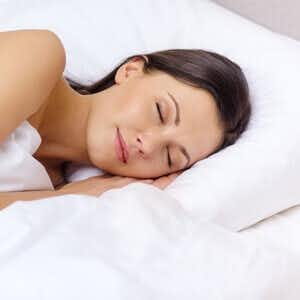
Are you getting a good night’s sleep? If you are like many Americans, the chances are you’re not. According to one survey, 40 percent of us get less than seven hours of shut-eye each night.
Here’s a little quiz:
- Do you drag yourself out of bed with difficulty?
- Do you often hit the snooze button?
- Do you find it hard to keep your eyes open in meetings, while reading or when watching TV?
- Does it take longer than an hour to fall asleep?
- Do you wake up periodically and have trouble getting back to sleep?
If you answered yes to more than one of these questions, you could be chronically sleep-deprived. The consequences might be more serious than you imagine. For one thing, you are a hazard on the highway. Research findings from New Zealand indicate that drowsy drivers are eight times more likely to have an accident than those who feel alert. In the U.S., fatal car crashes are more often due to sleepiness than to alcohol, at least for people under 25.
Sleep loss also has a negative impact on the immune system. Mice infected with flu virus recover more quickly if allowed to sleep normally than if their sleep is deliberately disrupted.
Another problem with skimping on sleep is lack of concentration and lapses in memory. A study of 5,000 first-graders has suggested that children who snore loudly-suggesting a sleep disturbance-are twice as likely as others to experience attention problems or hyperactivity.
Snoring is unusual in children, but far more common as we get older. Sometimes it is benign, but if it is caused by sleep apnea (sleep-related breathing disturbances), the snorer is at increased risk of serious problems such as high blood pressure or heart disease.
A number of chronic conditions seem to make it harder for people to get the sleep they need. And, in a vicious cycle, inadequate sleep can make the disorder worse. This unfortunate merry-go-round is especially serious with certain painful conditions like fibromyalgia. In such situations, insomnia is strongly associated with poor quality of life.
Even people with serious insomnia can overcome it, though. A study conducted at Duke University found that people instructed in good sleep habits and given cognitive behavioral therapy were able to halve the number of times they woke up each night and increase their total sleep time by about half an hour.
How can you do this? First, resist the powerful urge to take a long nap in the middle of the day. Instead, stick to a regular schedule for sleeping, going to bed and rising around the same time each day. Vigorous exercise five or six hours before bedtime can be very helpful, while an exciting TV show late at night can make it harder to fall asleep at a reasonable hour.
For more information on non-drug approaches to overcoming insomnia, as well as pros and cons of sleeping pills, we offer our Guide to Getting a Good Night’s Sleep.
11/29/18 redirected to: https://www.peoplespharmacy.com/articles/does-too-little-sleep-make-you-quicker-to-anger/

